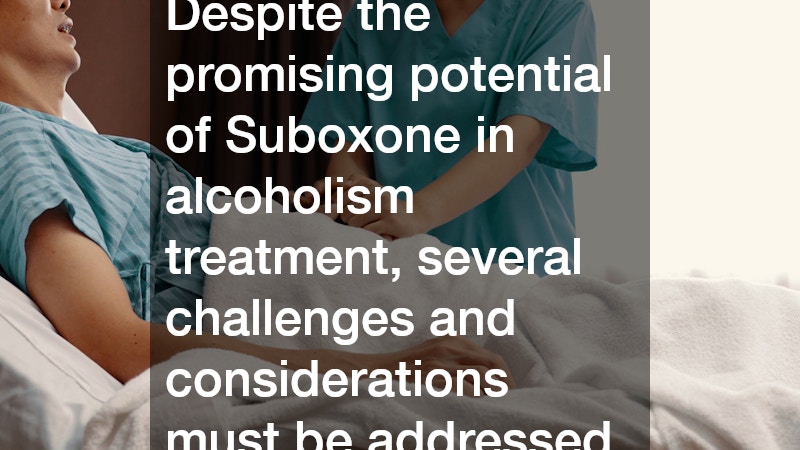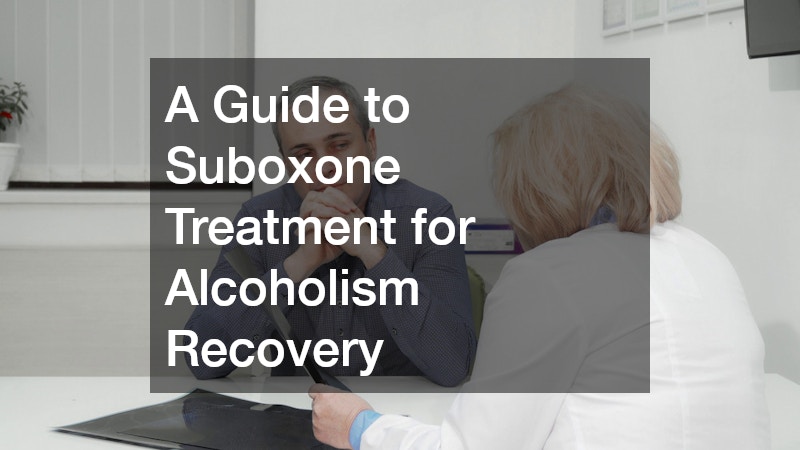Alcoholism, a chronic disease characterized by an unrestrained need to consume alcohol, affects millions of individuals worldwide. In recent years, researchers have been exploring new treatments to enhance recovery outcomes, including the potential role of medication-assisted therapies traditionally reserved for opioid addiction. One such promising treatment is Suboxone, a medication known predominantly for its role in easing opioid withdrawal symptoms. By exploring how alcoholism and Suboxone treatment can aid in recovery, we might uncover new pathways to effective intervention for many struggling with alcohol dependency. This guide aims to provide clarity on how Suboxone can be integrated into alcoholism treatment plans, offering hope for a more comprehensive recovery journey.
Understanding Suboxone and Its Composition
Suboxone is a prescription medication that combines two key components: buprenorphine and naloxone. Buprenorphine is a partial opioid agonist that helps reduce cravings and withdrawal symptoms by partially activating opioid receptors in the brain. Naloxone is an opioid antagonist that quickly reverses the effects of opioids, discouraging misuse by inducing withdrawal when the medication is taken improperly. Originally developed for opioid addiction, Suboxone has proven effective in reducing dependence by both alleviating withdrawal symptoms and decreasing the likelihood of relapse. Understanding these mechanisms is crucial as we explore its potential for treating alcoholism, a field where Suboxone is gradually gaining attention.
The role of buprenorphine in Suboxone is primarily to provide a lower-risk option for managing addiction. Unlike full opioid agonists, it does not produce the same level of euphoric effects, making it less attractive for misuse. For individuals with alcohol dependency, the importance of minimizing withdrawal symptoms and cravings cannot be overstated. The incorporation of naloxone within Suboxone acts as a deterrent against injection abuse, further supporting its safe use in treating dependency. These characteristics collectively make Suboxone a viable candidate for addressing alcohol addiction, warranting a thorough investigation into its appropriate application.
While Suboxone’s primary use has been opioid addiction treatment, its off-label potential for alcoholism treatment opens new avenues for recovery. The synergy between buprenorphine and naloxone contributes to a balanced approach that mitigates daily struggles faced by those with chemical dependencies. As we move forward, it is critical to understand the specific interactions of these compounds with alcohol to validate their effectiveness in treating alcoholism. Evidence suggests that both buprenorphine and naloxone might offer benefits that extend beyond opioid addiction. As a result, it becomes increasingly important to examine their efficacy and safety in alcohol dependency scenarios to determine their place in existing treatment frameworks.
Potential Benefits of Suboxone in Alcoholism Recovery
The potential benefits of utilizing Suboxone in alcoholism recovery lie in its ability to reduce cravings and mitigate withdrawal symptoms. For many individuals, the fear of withdrawal is a significant barrier to seeking help. By diminishing the physical distress associated with cessation, Suboxone can create a more manageable pathway towards sobriety. Additionally, decreased cravings result in reduced incidences of relapse, a critical factor in achieving long-term recovery. The dual action of buprenorphine and naloxone, which addresses both physiological and psychological aspects of addiction, can thus be leveraged to improve overall treatment outcomes for alcoholism.
Emotional stability during alcohol recovery is another area where Suboxone may offer significant improvements. Many individuals suffering from alcohol dependence experience severe mood swings and anxiety during the initial detox phase. By mediating some of these effects, Suboxone may create a more stable environment conducive to therapy and counseling sessions. The calming effect helps patients engage more deeply with cognitive-behavioral therapies and other therapeutic modalities, making comprehensive treatment more effective. Additionally, this emotional equilibrium can enhance adherence to treatment plans, further solidifying recovery efforts.
Challenges and Considerations
Despite the promising potential of Suboxone in alcoholism treatment, several challenges and considerations must be addressed. One primary concern is the off-label status of Suboxone for treating alcohol dependence, necessitating careful oversight and expert consultation. Clinicians must balance the benefits of reduced cravings with the risk of potential side effects or misuse. Furthermore, since Suboxone was initially designed for opioid dependence, its effectiveness in alcohol addiction contexts requires rigorous empirical scrutiny. Addressing these gaps in research is crucial to validating its application and ensuring patient safety.
Another significant challenge lies in the holistic integration of medical treatment with therapeutic strategies. For patients undergoing alcoholism Suboxone treatment, comprehensive care that includes psychological support, therapy, and lifestyle adjustments is essential. Successfully combining medication with holistic care can help transcend the limitations experienced with singular treatments. Adequate awareness and education about Suboxone and its effects are costly investments but vital for clinicians and patients alike. Proper support structures enable better alignment with strategic recovery goals and facilitate more profound acceptance of new treatment modalities.
Cost considerations also play an integral role in the feasibility of using Suboxone for alcoholism treatment. Access to affordable healthcare options influences recovery possibilities, necessitating budget-friendly strategies. Unfortunately, the higher expense associated with medication-assisted treatments may present barriers to those without substantial insurance coverage or financial means. Policymakers and health practitioners must explore strategies to improve accessibility while ensuring efficacy remains uncompromised. By addressing logistical and financial challenges, stakeholders can pave the way for broader utilization of Suboxone treatment in overcoming alcohol addiction.
Acknowledging, implementing Suboxone treatment in alcoholism recovery represents an evolving frontier yet to be fully navigated. Flexibility and receptivity to novel treatment paradigms will allow for the maintenance and adaptation of effective recovery pathways. It is crucial, therefore, to provide informed choices to individuals battling addiction and to support them with evidence-backed, compassionate care. Through collective endeavors, we can significantly improve the quality of addiction treatment services and create brighter futures for those willing to take the first step towards recovery.







